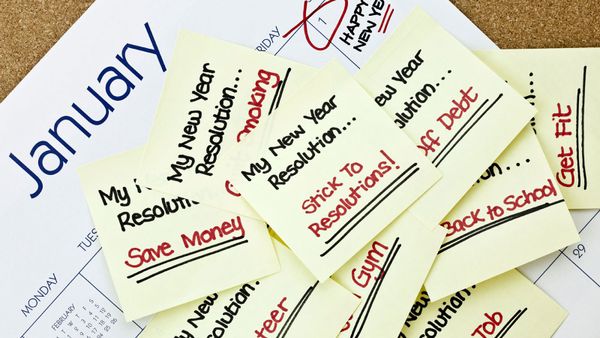
Every New Year's Eve, I write a list of resolutions. Some are practical (whiten teeth), while others are a bit of a stretch (write best-selling novel). These promises to myself run the gamut — from physical to mental, possible to improbable — but all have one thing in common: They serve as my own personal road map for the next 12 months.
And I'm not alone. The concept of creating New Year's resolutions is so ingrained in U.S. culture that the U.S. government even has a list of popular resolutions and resources for achieving them. It's a baker's dozen of good intentions, including: drink less alcohol, eat healthy food, get a better education, get a better job, get fit, manage debt and manage stress.
Advertisement
As someone who's made "exercise more" and "lose weight" resolutions (more than once), I wanted to know: Is it true that most people don't keep their resolutions? The answer, I am relieved to discover, appears to be a resounding "yes."
Whew.
Richard Wiseman, a psychologist and author with a penchant for mass participation experiments, discovered that 52 percent of people making New Year's resolutions were confident they'd stick it out. Yet only a scant 12 percent really did [source: Eisenstadt].
Then why bother? New Year's resolutions are, as one author wrote, "a triumph of hope over experience" [source: Westacott]. They're a way to quantify what we wish for ourselves. They are a means to cataloguing our personal dissatisfactions. And, perhaps most importantly, they are a method of erasing errors of the past year.
Yes, New Year's resolutions are all about hopefulness. And it's always been that way.
Advertisement

